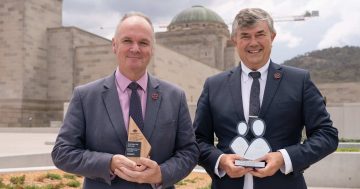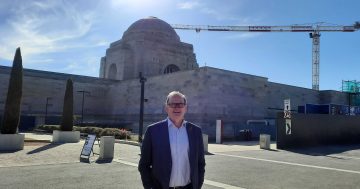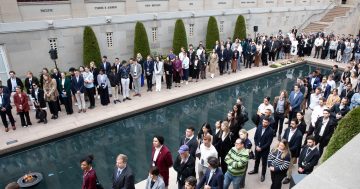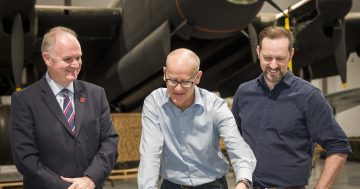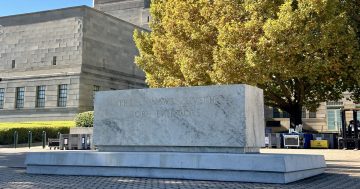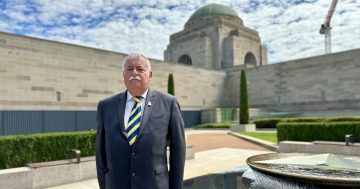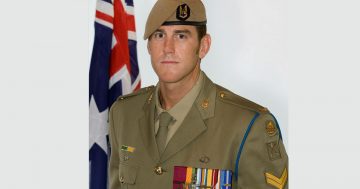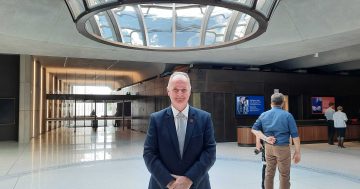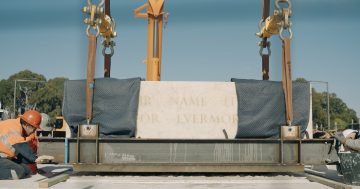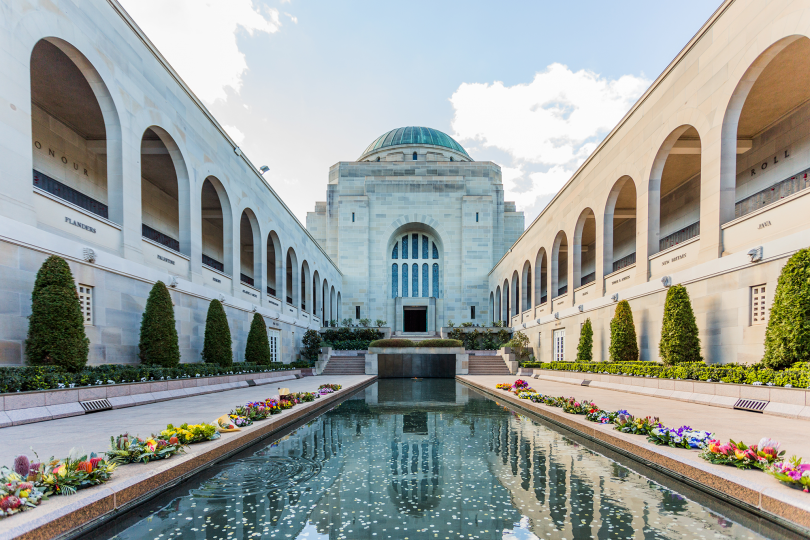
Protests are growing against Australian War Memorial’s plans for a $498 million expansion Photo: Jack Mohr.
83 prominent Australians ranging from author Thomas Keneally to former Department of Defence secretary Paul Barrett, and even the Australian War Memorial’s former director Brendon Kelson have joined their voices to the protest against the AWM’s half-billion-dollar expansion.
Plans were announced in November for a $498 million expansion over the next nine years that will double the size of 77-year-old institution’s visitor areas and includes demolishing Anzac Hall. The building is only 17 years old and won the 2005 RAIA National Sir Zelman Cowen Award for the Most Outstanding Work of Public Architecture in Australia, costing $11.8 million to build.
The long list of prominent Australians have written an open letter via the Honest History website, saying that the extension “cannot be justified, they show the Memorial is being given preference over other national institutions, and the money could be better spent.
“The Memorial Director, Dr Brendan Nelson, touts the Memorial as telling ‘our story’. The Memorial should be revered, but Australia has many stories and Dr Nelson’s excessive veneration of the Anzac story denies the richness of our history,” the letter says.
ANU Professor of History Frank Bongiorno was one of the signatories and told Region Media that he thought it was “extraordinary to spend half a billion dollars to create an enormous space that will be largely devoted to displaying more planes and tanks”.
“The AWM is already a very large institution, and I don’t buy into a lot of the discussion about the AWM having a therapeutic role in relation to healing returned service personnel as a justification for this. The notion you have to spend half a billion to play that role appropriately and functionally just doesn’t seem plausible to me.”
Professor Bongiorno said that many of the other national institutions which also have a key role in telling the history of Australia at war are, effectively, on “starvation diets” with regard to their funding.
“The National Archives is a good example. It contains all the service and repatriation records of tens of thousands of service personnel. While the government has funded a new repository, the Archives are clearly underfunded in many ways and their service function happens on a shoestring,” he said.
“A vast sum of money is being spent on a single project when a range of underfunded institutions that tell a variety of Australian stories, including our wartime history, are being marginalised and left behind.”
It’s a concern shared by another of the signatories, Associate Professor of History at La Trobe University Dr Clare Wright. She spoke at the National Library last week about You Daughters of Freedom, her history of how Australian women were the first in the world to win the full right to vote and established themselves as global leaders on the issue before the First World War.
Asked about the rise of ANZAC history, Dr Wright addressed the question of how a significant achievement with global significance for voting rights had been almost obliterated by subsequent events. “Before the sons of empire died on a beach at Gallipoli and rebirthed a nation, we were already the daughters of freedom, and this was the story of us,” she said.
Responding to claims that the expansion will create space to display more of the big artefacts representing recent but forgotten conflicts, and to heal veterans, the letter’s signatories say that “Recent conflicts should instead be presented in proportion to their significance; responsibility for veterans’ welfare belongs with Defence and Veterans’ Affairs.”
They also claim that the planned extensions will “offer Dr Nelson a permanent legacy like that of none of his predecessors”, and run the risk of destroying the Memorial’s character.
“We have just seen over $350 million spent by the Commonwealth on the Anzac Centenary and the Sir John Monash Centre in France. Should further money be spent on these extensions rather than on other needy cultural institutions or direct benefits to veterans and their families?”, the letter asks.
Do you think that the Australian War Memorial is benefitting at the expense of other institutions?












